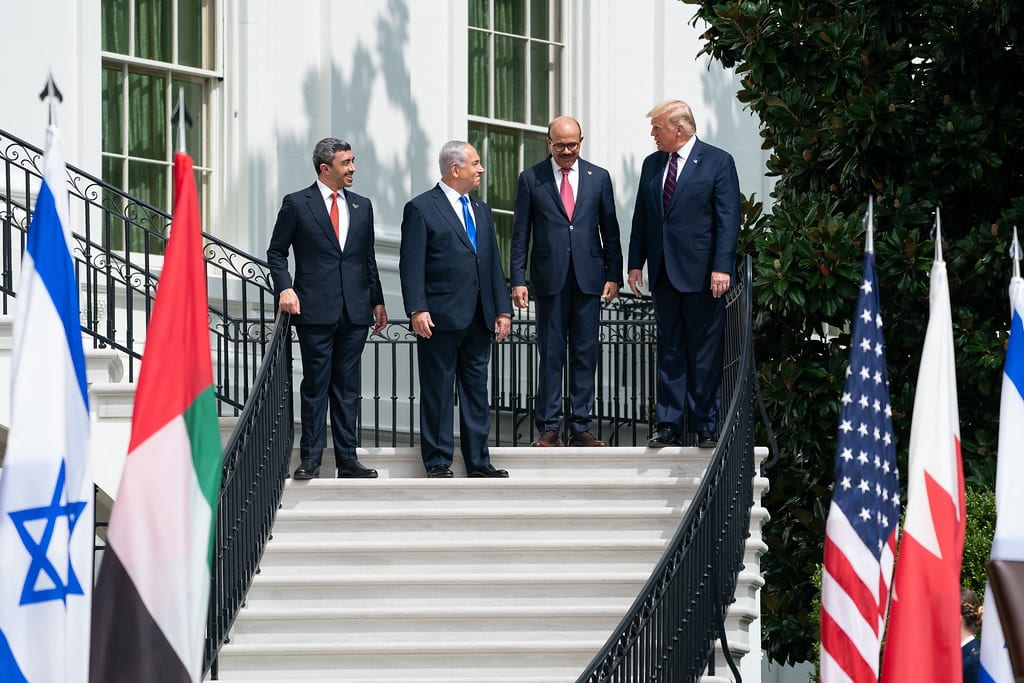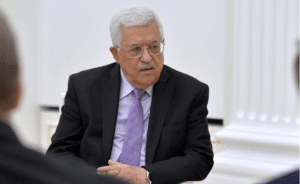Recently, the United Arab Emirates (UAE) and Bahrain normalised their relationships with Israel, after mediation of the United States. Despite years of intra-Palestinian frictions, leaders of the different Palestinian factions formed one front against the normalisation agreements.
The UAE terminated its economic boycott toward Israel, opened a direct landline between the two countries and made direct air travel possible. The latter of which Saudi Arabia has allowed for Israeli planes to use its airspace. Also, co-cooperation in environmental protection, water, energy and health are planned to take place, said Israeli Prime Minister Benjamin Netanyahu. The first step in the agreement between Bahrain and Israel is to establish a diplomatic relationship, as well as direct flights, which will be followed by further measures.
Striking cooperation between Palestinian factions as a response
The Palestinians have denounced the normalisation agreements and feel it is a betrayal to their cause. In the wake of the recent affairs, the leaders of the Palestinian factions met to discuss a strategy against the agreements. Hamas leader Ismail Haniya therefore travelled to Lebanon where he met the representatives of other Palestinian blocs and Palestinian Liberation Organisation (PLO) leader Mahmoud Abbas did so in the West Bank. This event is striking since the PLO, Hamas and other factions have been in conflict for years. However, they decided to put aside their differences to form one front against the new normalisation agreements as they fear it puts the Palestinian cause in jeopardy. Haniya said that the aim of the meetings was “to open a new page, to end divisions, achieve national reconciliation and build a national partnership between all factions”.
In 2002, the Arab League accepted Saudi Arabia’s peace plan in which Arab nations would recognise Israel only if the country would go back to its 1947 borders and provide a just solution for the Palestinian cause, including the Right of Return of Palestinian refugees and a Palestinian state. Now that two of the Arab League Member States recognized Israel under current deteriorating circumstances for the Palestinians, the question arises if these demands will be met at all.
Palestinians widely took to the streets in the West Bank and Gaza to protest against the agreements. In a time where Western companies are boycotting Israel, they feel they are being neglected by their fellow Arabs to pursue normalised relations. There have been protests in Bahrain as well, where the opposition denounced the government’s decision.
On the day that the agreements were signed in Washington, rockets were launched from Gaza into Israel. The Israeli army said that two individuals had been wounded as a result of the strikes. In response, Israel bombed Gaza, where no causalities were reported.
Will more countries follow?
Many countries around the world have welcomed the new relationship between Israel and the two Gulf countries. There have been speculations that more Arab and Islamic countries will follow in the footsteps of Bahrain and the UAE. Israeli Intelligence Minister Eli Cohen stated that he thinks Oman and Sudan will follow soon, but this is not confirmed. In addition, Morocco had been alleged to be one of the next countries to normalise ties with Israel however, Moroccan Prime Minister Saad Dine El Otmani rejected this rumour. Pakistan, Qatar, Saudi Arabia and Algeria already announced that they will not sign any peace treaties with Israel until a solution for the Palestinian cause has been found, which, depending on the country, includes a Palestinian state with borders complying to those of 1967.
Israel has gradually been confiscating land from the West Bank to build settlements for Israeli Jews. This act is seen as illegal under international law. Netanyahu had declared that in addition to these illegal settlements, he wants to annex parts of the West Bank and apply Israeli sovereignty there. On the 1st of July 2020, the Prime Minster planned to start this annexation, but when that day arrived nothing happened. When the normalisation agreement between Israel and the UAE was announced the following month, UAE officials stated that they agreed to the normalisation only if Israel would halt the annexation of the West Bank. However, even though the deadline of the 1st of July had not been met, Netanyahu said that his plans were not off the table yet.
Sources: Aljazeera1, Aljazeera2, Aljazeera3, Aljazeera4, Aljazeera5, Aljazeera6, BBC1, BBC2, France24, Reuters1, Reuters2, Reuters3, Reuters4, Reuters5
Image: Flickr



